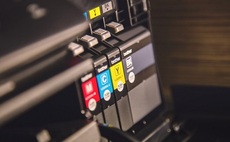HP tackles unstructured data with Autonomy-based IDOL 10
HP has unveiled its first set of product releases integrated with Autonomy's software, following the $10bn (£6.3bn) acquisition of the Cambridge-based company in August. IDOL 10 is a single proc...
To continue reading this article...
Join Computing
- Unlimited access to real-time news, analysis and opinion from the technology industry
- Receive important and breaking news in our daily newsletter
- Be the first to hear about our events and awards programmes
- Join live member only interviews with IT leaders at the ‘IT Lounge’; your chance to ask your burning tech questions and have them answered
- Access to the Computing Delta hub providing market intelligence and research
- Receive our members-only newsletter with exclusive opinion pieces from senior IT Leaders




















